Mar 2024: I have started a new role with the Government of Canada
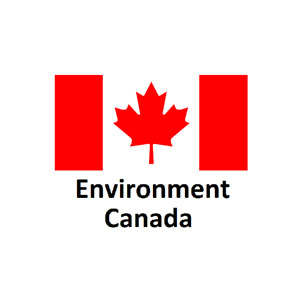
I am thrilled to share that I have recently joined as a Protected Areas Specialist with the Environment and Climate Change Canada, Government of Canada. As a part of this role, I will lead management, monitoring and public and Indigenous engagement at Alberta Protected Areas that includes four National Wildlife Areas (NWAs) and four Migratory Bird Sanctuaries in Alberta. Our team will monitor conditions at NWAs by collecting and analyzing data on migratory birds, species at risk, invasive species and rangelands habitats. We will continue to work with landowners and neighbours to improve conservation in and around NWAs.
Nov 2023: My journey in science communication featured on 'Dhvani' by IndiaBioScience
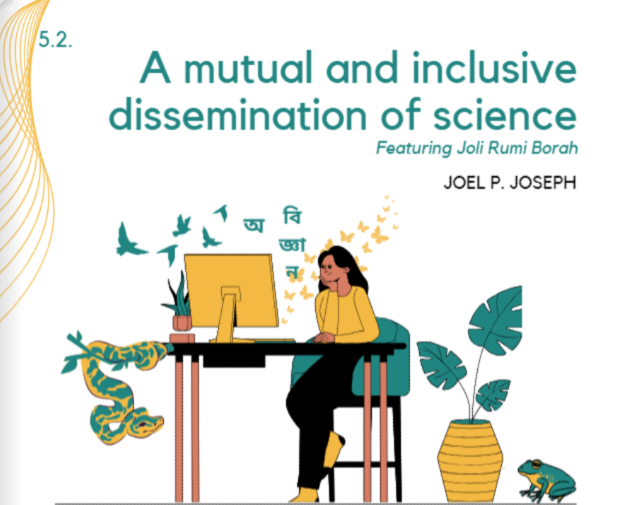
“Growing up I had my own struggles getting access to knowledge that was not available in Assamese”, she says. So, Borah is passionate about breaking the language barrier in science to make it more inclusive and equitable.She recently published a part of her doctoral work conducted in Nagaland, ‘The value of shifting cultivation for biodiversity in Northeast India’, in the journal Diversity and Distributions. She included a transliterated version of its abstract in the lingua franca Nagamese language.’ My journey in science communication has been featured on ‘Dhvani’ by IndiaBioScience! To read the full article, click here.
June 2023: My first trilingual talk on my journey on Assamese Wikimedia
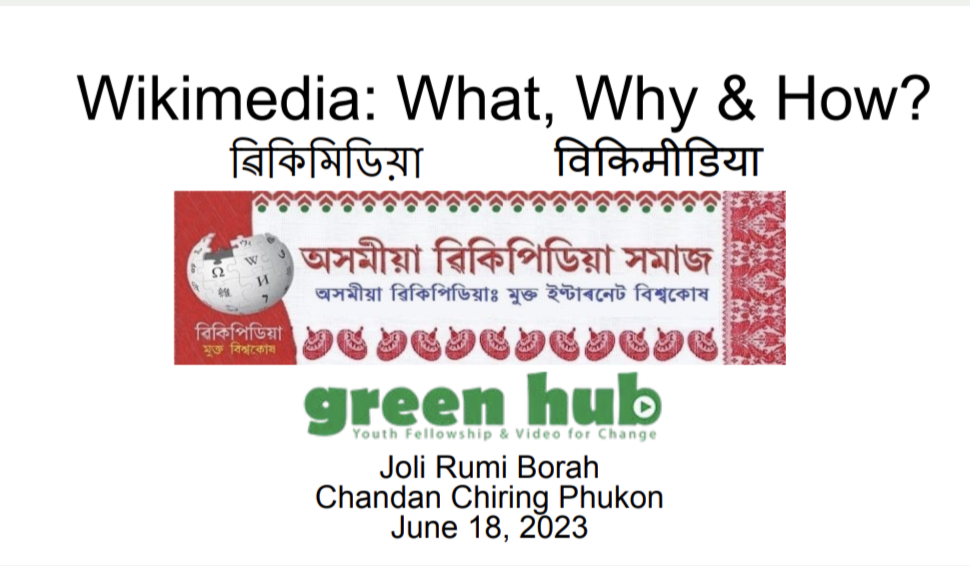
I recently gave a talk to the Green Hub Fellows from Northeast India on the “what, why, and how” of Wikimedia in three languages Assamese, Hindi, and English. I spoke about why and how I started contributing to Assamese Wikipedia and my motivations for being an Assamese Wikipedian for more than a decade now. This was a part of a collaborative initiative between Green Hub and Assamese WIki Community to encourage the fellows to contribute nature related content and photos from Northeast India to Wiki projects.
April 2023: Mongabay India featured my journey as a researcher so far in a recent interview
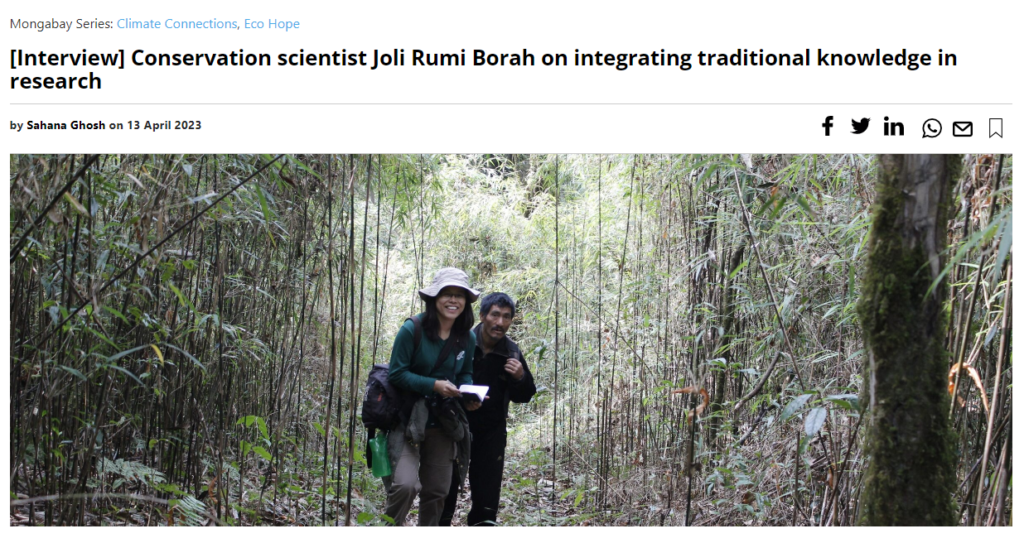
I just spoke to Mongabay India about my journey as a researcher so far! In this interview, I highlight how working with the local communities in Nagaland helped me grow as a scientist and how I became passionate about science communication in regional languages. I also advocate for better integrating Indigenous knowledge with western knowledge in research. The full interview is available here.
Oct 2022: I have started a new role with the Government of Alberta, Canada
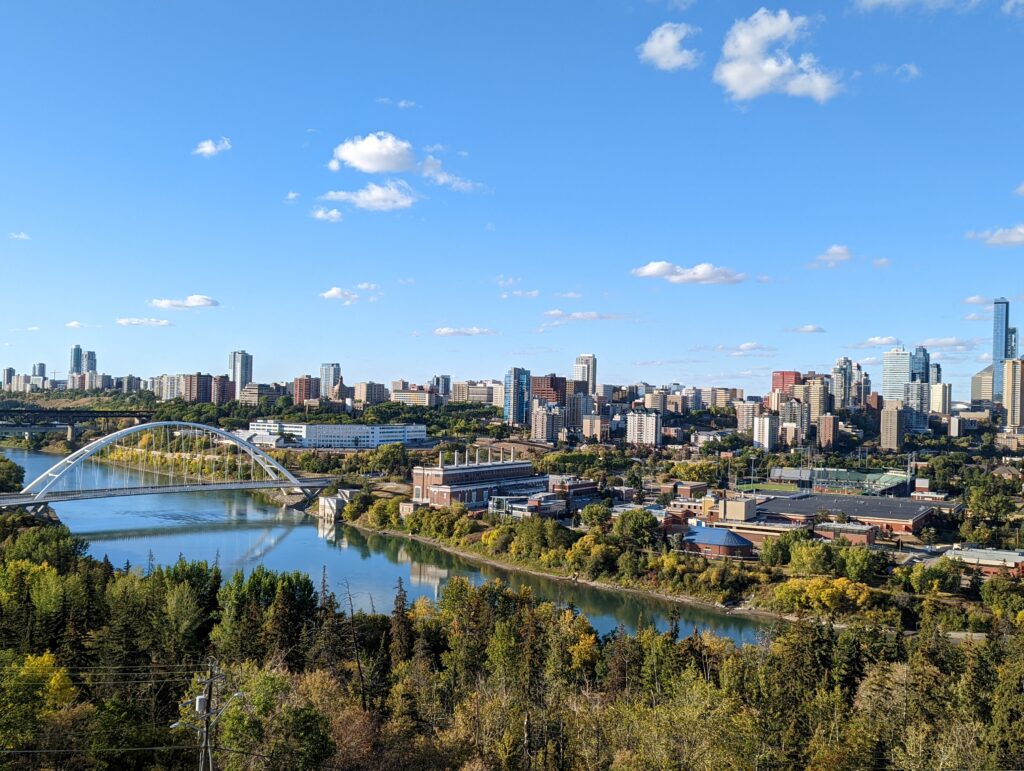
I am thrilled to share that I have recently joined as a Senior Wildlife Biologist with the Ministry of Environment and Protected Areas, Government of Alberta, Canada. In this role, I will be responsible for the management of all wildlife and wildlife habitat programs and ensuring the long term sustainability of wildlife populations and their habitats in the Fort McMurray area. This position also provides professional and operational support, leadership, advice and direction to various provincial level tasks, strategies, policies, and processes.
Sep 2022: I co-authored a new paper on 'Co-producing theory of change to operationalize integrated landscape approaches'
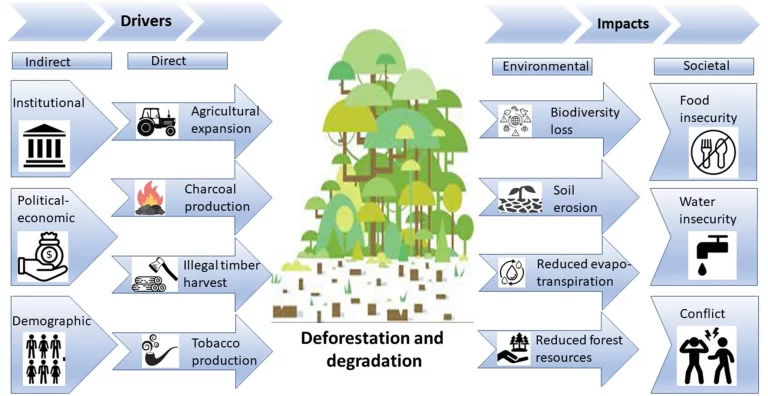
We published a new paper where we applied the principles of landscape approaches to co-produce a theory of change to address current unsustainable landscape management and associated conflicts in the Kalomo Hills Local Forest Reserve of Zambia. The participatory process engaged a diverse range of stakeholders including village head people, local and international researchers, district councillors, and civil society representatives amongst others. The paper is available here.
July 2022: I published a new paper on ' The value of shifting cultivation for biodiversity'
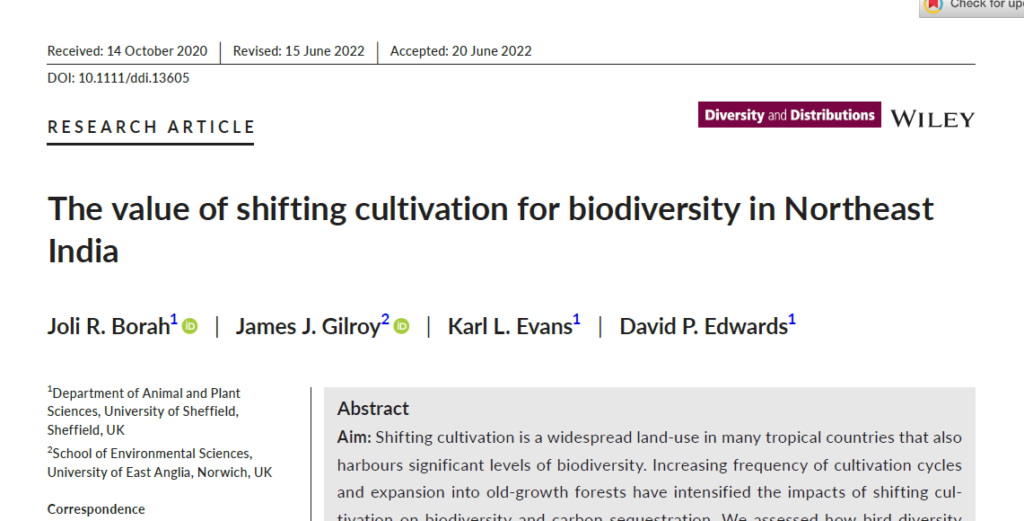
We published a new paper showing how landscape mosaics in traditional non-intensive shifting cultivation help sustain biodiversity in Nagaland, Northeast India. Excited to have the abstract in Nagamese language, the lingua franca in Nagaland where this study was conducted. The full paper is available here.
June, 2022: I published a new article on biocultural diversity and its importance in Northeast India
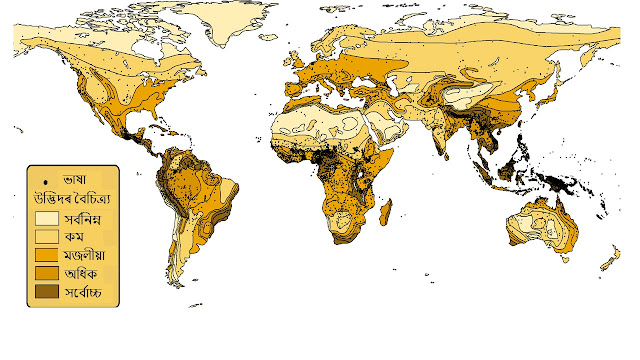
June, 2022: I published a new article on Citizen Science-Science for the people, by the people
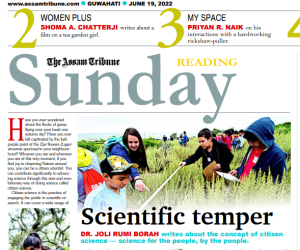
My article on the importance of citizen science has been just published on The Assam Tribune. I have been hooked on iNaturalist and eBird ever since I first started using them a few years ago and I really hope more people find the joy in simply observing nature & become citizen scientists. Read the full article here.
May, 2022: I co-authored a new paper on control of Fall Armyworm in Southern Africa
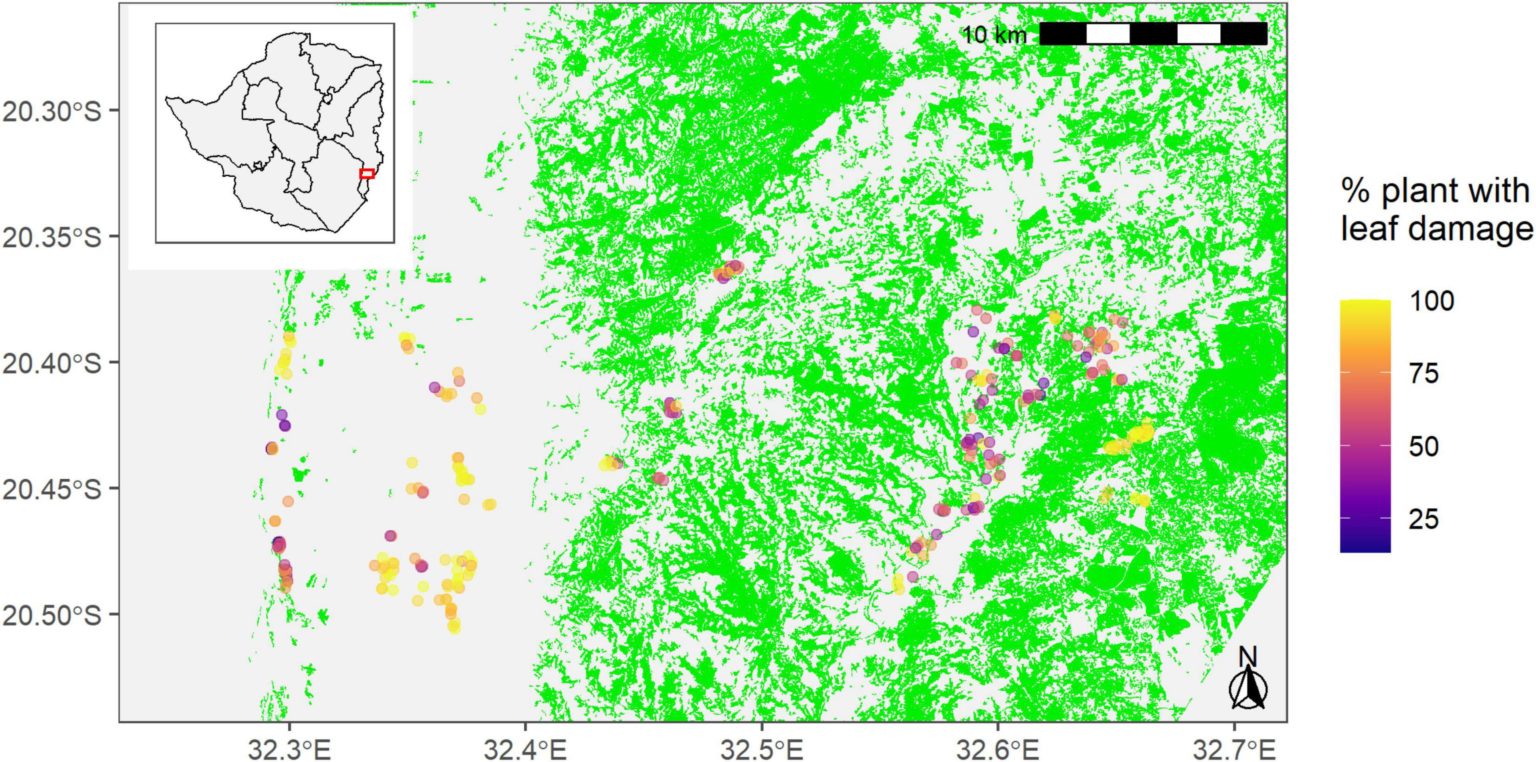
The fall armyworm (FAW) is a major pest on maize in southern Africa. We assessed how birds, bats, parasitoids, and generalist predators’ control FAW infestation and the role of forest or tree cover in biological pest control of FAW in maize in southern Africa. We found that proximity to forest positively impacts biological control of FAW. However further research is necessary to examine how predation by birds, bats and arthropods and parasitism impacts maize yield. The full paper is available here.
April, 2022: I am starting a new position at University of Guelph, Ontario
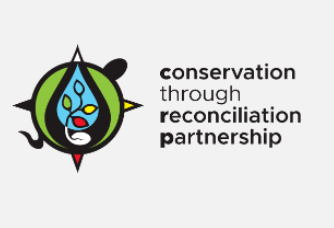
I have joined as a Postdoctoral Research Fellow at the Department of Geography, Environment & Geomatics, University of Guelph, Ontario, Canada this month on a new project. This project will explore the journeys of three urban and local-scale Indigenous Protected and Conserved Areas (IPCAs) across Canada to understand how they have been created and managed. This project has been funded by Environment and Climate Change Canada (ECCC) and I will be working with the Conservation through Reconciliation partnership at University of Guelph.
April 3, 2022: My work has been featured on Forbes magazine!
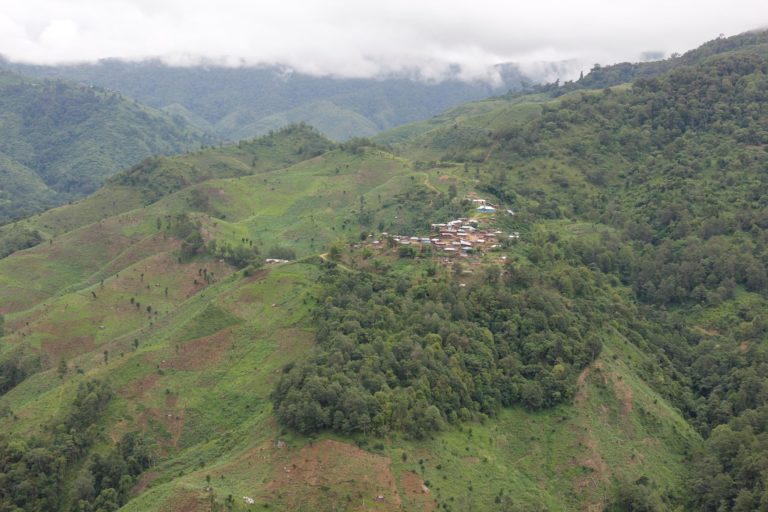
A new article on Forbes magazine by Andrew Wight highlighted my work on traditional shifting cultivation and biodiversity in Nagaland, India and my efforts for making science more inclusive and equitable. The full article is available here.
March 4, 2022: I took part in the follow-up workshop on 'Creating connections through Indigenous material practice'
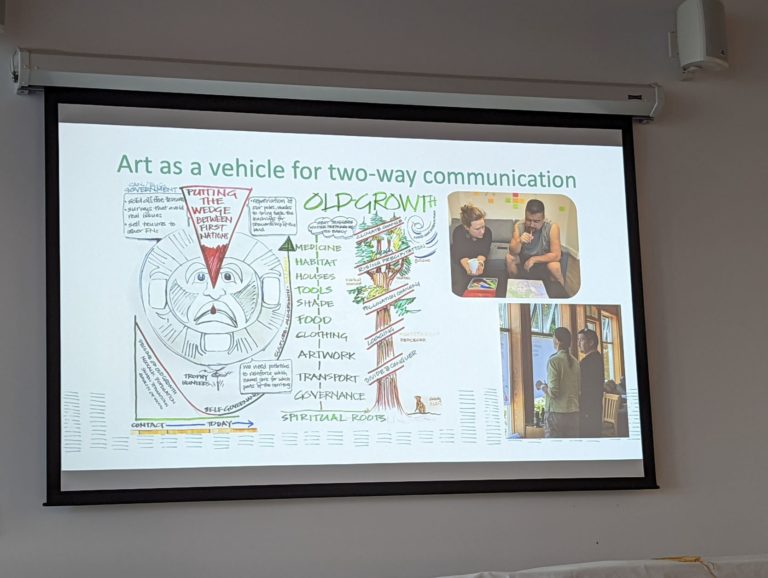
I attended the second part of this workshop that aimed to dive deeper into the ways that artistic processes create access and dialogue across different ways of knowing. We heard from James Harry on his experiences integrating traditional and contemporary tools, materials and techniques; Xwalacktun on creating art with a connection to the past, present, and future, and Briony Penn on their recent work on using visual materials in the Central Coast Culmulative Impacts Project, a collaboration of the Kitasoo Xai’xais, Nuxalk, and Wuikinuxv Nations. We learnt and discussed ways to contribute as well.
February 23, 2022: I gave a talk at an workshop on 'Studies in Science Communication and Popular Science Writing in Assamese: Assessment and Future Needs'

I gave a talk at a Virtual Workshop in Assamese on the past and present status of science communication in Assamese language. This workshop was organized by CSIR-National Institute of Science Communication and Policy Research (CSIR-NIScPR), New Delhi. The workshop intended to bring together experts in science communication and popular science writers to share their thoughts and opinion for future direction in science communication to break the language barrier and to make science more inclusive and accessible to everyone.
November 19, 2021: I took part at a workshop on 'Creating connections through Indigenous material practice'
![]() I took part at a workshop that aimed to explore the power of Indigenous art as a catalyst for linking economic growth to sustainable landscapes. Organized by Vibrant Forest Landscapes Lab at University of British Columbia and Emily Carr University of Art+Design. The workshop was organized as part of a study that aimed to understand how art can bring together people with diverse and
I took part at a workshop that aimed to explore the power of Indigenous art as a catalyst for linking economic growth to sustainable landscapes. Organized by Vibrant Forest Landscapes Lab at University of British Columbia and Emily Carr University of Art+Design. The workshop was organized as part of a study that aimed to understand how art can bring together people with diverse and
often conflicting perspectives to build relationships and reach consensus around an issue.
October 21, 2021: I co-wrote an article on Mongabay India on ‘Balancing trade-offs between biodiversity conservation and livelihoods’
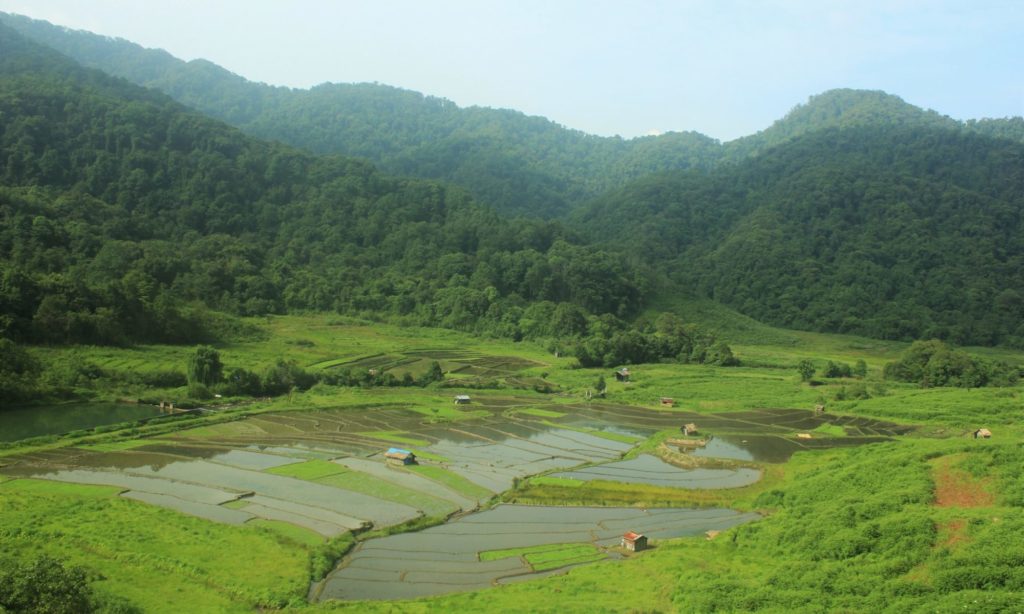
India aims to better integrate biodiversity conservation and livelihood objectives through the Biodiversity Conservation and Rural Livelihood Improvement (BCRLI) project. However, identifying land-use synergies and balancing trade-offs across scales and sectoral boundaries will be key for sustainable landscape management.
A new article on how to better integrate the ecological dimension in Integrated landscape approaches (ILAs). The article is available here
September 06, 2021: I co-published an article on ‘How do forests and trees sustain agriculture?’
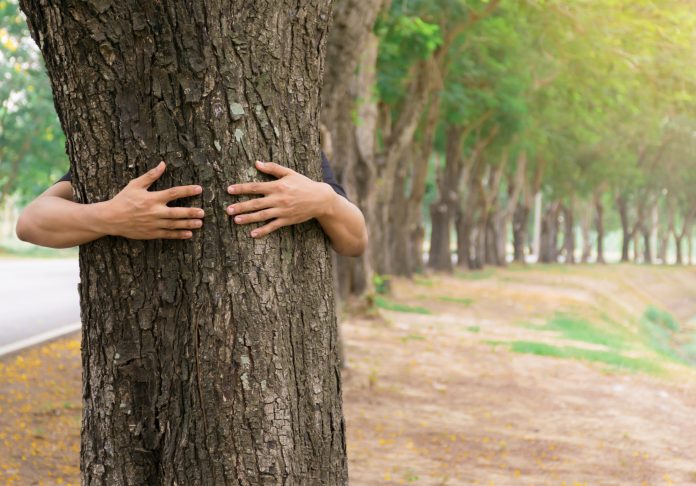
Forests and agriculture, although often considered as separate or conflicting entities, are actually interlinked. Agricultural intensification and expansion are the primary drivers of global forest loss accounting for 11% of total global carbon emissions. Forest conversion negatively impacts biodiversity, reduces ecosystem resilience and also affects ecosystem services such as pollination, nutrient cycling and soil fertility that are crucial for the long-term sustainability of agriculture itself.
The article is available here.
October 28, 2020: I gave a talk at Global Landscapes Forum (GLF) Biodiversity Digital Conference on 'The role of biodiversity in Integrated Landscape Approaches'
I gave a talk at Global Landscapes Forum (GLF) Biodiversity Digital Conference emphasizing the need for evidence-based monitoring and reporting to encourage informed use of Integrated Landscape approaches (ILAs). This was a part of the Collaborating to Operationalise Landscape Approaches for Nature, Development and Sustainability (COLANDS) initiative. Our team also launched a new book, Operationalizing Integrated Landscape Approaches in the Tropics, which documents early results from applying ILAs – a holistic approach to achieving resilient landscapes while protecting their ecosystems and livelihoods.
September 24, 2020: I gave a talk to the masters of international forestry class at UBC on Citizen Science
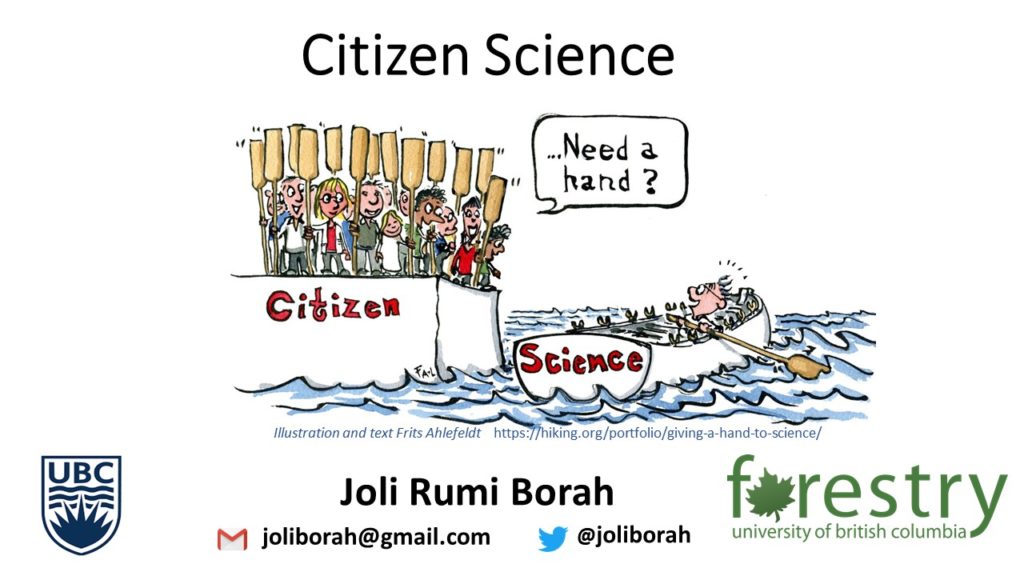
I gave a talk to the masters of international forestry class at University of British Columbia on Citizen Science, what is it and how to be a citizen scientist.